Resources
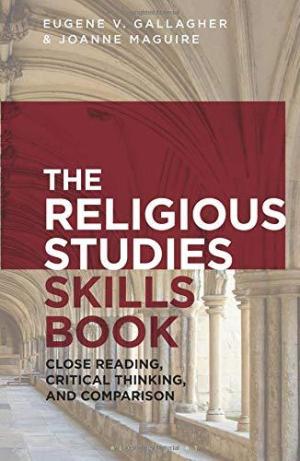
Click Here for Book Review This book supports students engaged in the study of religions by helping them understand key processes particular to the field, including bracketing and comparison, and general humanities skills, like critical thinking and close reading. The authors offer useful examples throughout the book and augment those with further exercises available online. - Molly H. Bassett, Georgia State University Studying religion in college or university? This book shows you how to perform well on your course tests and examinations, write successful papers, and participate meaningfully in class discussions. You'll learn new skills and also enhance existing ones, which you can put into practice with in-text exercises and assignments. Written by two award-winning instructors, this book identifies the close reading of texts, material culture, and religious actions as the fundamental skill for the study of religion at undergraduate level. It shows how critical analytical thinking about religious actions and ideas is founded on careful, patient, yet creative “reading” of religious stories, rituals, objects, and spaces. The book leads you through the description, analysis, and interpretation of examples from multiple historical periods, cultures, and religious traditions, including primary source material such as Matthew 6:9-13 (the Lord's Prayer), the gohonzon scroll of the Japanese new religion Soka Gakkai, and the pilgrimage to Mecca (hajj). It provides you with typical assignments you will encounter in your studies, showing you how you might approach tasks such as reflective, interpretive or summary essays. Further resources, found on the book's website, include bibliographies, and links to useful podcasts. (From the Publisher)
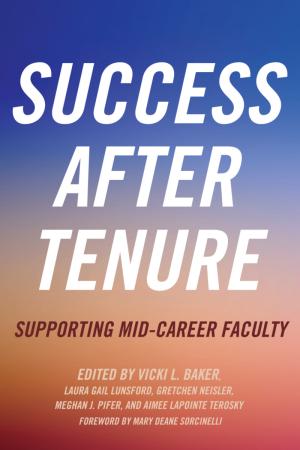
This book brings together leading practitioners and scholars engaged in professional development programming for and research on mid-career faculty members. The chapters focus on key areas of career development and advancement that can enhance both individual growth and institutional change to better support mid-career faculties. The mid-career stage is the longest segment of the faculty career and it contains the largest cohort of faculty. Also, mid-career faculty are tasked with being the next generation of faculty leaders and mentors on their respective campuses, with little to no supports to do so effectively, at a time when higher education continues to face unprecedented challenges while managing continued goal of diversifying both the student and faculty bodies. The stories, examples, data, and resources shared in this book will provide inspiration--and reality checks--to the administrators, faculty developers, and department chairs charged with better supporting their faculties as they engage in academic work. Current and prospective faculty members will learn about trends in mid-career faculty development resources, see examples of how to create such supports when they are lacking on their campuses, and gain insights on how to strategically advance their own careers based on the realities of the professoriate. The book features a variety of institution types: community colleges, regional/comprehensive institutions, liberal arts colleges, public research universities, ivy league institutions, international institutions, and those with targeted missions such as HSI/MSI and Jesuit. Topics include faculty development for formal and informal leadership roles; strategies to support professional growth, renewal, time and people management; teaching and learning as a form of scholarship; the role of learning communities and networks as a source of support and professional revitalization; global engagement to support scholarship and teaching; strategies to recruit, retain, and promote underrepresented faculty populations; the policy-practice connection; and gender differences related to key mid-career outcomes. While the authors acknowledge that the challenges facing the mid-career stage are numerous and varying, they offer a counter narrative by looking at ways that faculty and/or institutions can assert themselves to find opportunities within challenging contexts. They suggest that these challenges highlight priority mentoring areas, and support the creation of new and innovative faculty development supports at institutional, departmental, and individual levels. (From the Publisher)
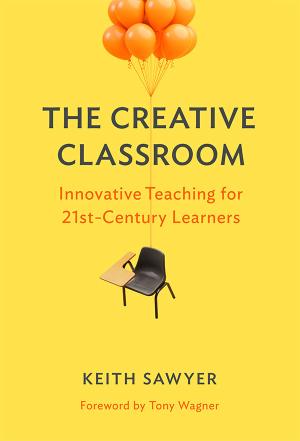
The Creative Classroom presents an original, compelling vision of schools where teaching and learning are centered on creativity. Drawing on the latest research as well as his studies of jazz and improvised theater, Sawyer describes curricula and classroom practices that will help educators get started with a new style of teaching, guided improvisation, where students are given freedom to explore within structures provided by the teacher. Readers will learn how to improve learning outcomes in all subjects—from science and math to history and language arts—by helping students master content-area standards at the same time as they increase their creative potential. This book shows how teachers and school leaders can work together to overcome all-too-common barriers to creative teaching—leadership, structure, and culture—and collaborate to transform schools into creative organizations. (From the Publisher)
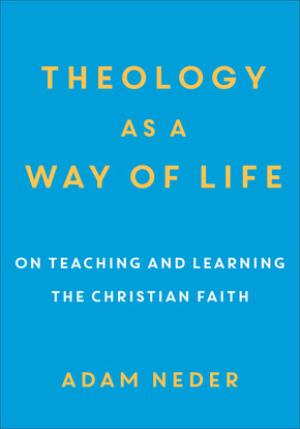
What difference does Jesus Christ make for the way we teach the Christian faith? If he is truly God and truly human, if he reveals God to us and us to ourselves, how might that shape our approach to teaching Christian theology? Without a compelling theological vision of theological instruction and without a clear awareness of its unique goals, challenges, and temptations, our teaching will be out of joint with the subject matter, and we will waste valuable opportunities. Drawing on the work of S√∏ren Kierkegaard, Karl Barth, and Dietrich Bonhoeffer, Adam Neder offers a clear and creative theological and spiritual reflection on the art of teaching the Christian faith. This concise and engaging book offers a wealth of fresh insights and practical suggestions. While addressed to teachers in academic contexts, the approach is broad enough to include anyone involved in teaching and learning Christianity. (From the Publisher)
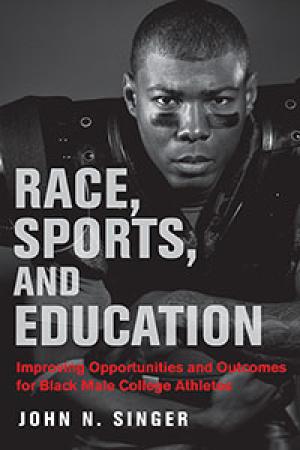
Race, Sports, and Education highlights the myriad ways in which organized collegiate sport has both positively contributed to and negatively detracted from the educational experiences of Black male college athletes. Specifically, John N. Singer examines the educational experiences, opportunities, and outcomes of Black males who have played NCAA Division I football and/or basketball at historically White colleges and universities. Singer is intensely aware of the ways in which many Black athletes have been shortchanged by the collegiate sport system. He describes how the colleges and universities have exploited athletes for the institutions’ financial gain and deprived them of basic educational opportunities that ought to be enjoyed by all students. At the same time, Singer argues that sports do in fact offer genuine educational opportunities and benefits for many of these athletes. He is acutely attuned to the fact that these athletes love their sports, and that their participation in these sports makes unique educational experiences available to them. As Singer shows, to understand the situation and to chart realistic, fruitful reform measures requires a full appreciation of the complexity—indeed, of the many competing and contradictory elements—that characterizes intercollegiate sport and the experiences of Black athletes at the present time. The book brings to the fore the voices, stories, and perspectives of twelve Black male college athletes via a case study of teammates from a big-time college football program and individual reflective vignettes of athletes across several different college programs. Through his analysis of the system and his attention to student views and experiences, Singer crafts a valuable, nuanced account and points in the direction of reforms that would significantly improve the educational opportunities and experiences of these athletes. At a time when collegiate sports have attained unmistakable institutional value and generated unprecedented financial returns—all while largely failing the educational needs of its athletes—this book offers a clear, detailed vision of the current situation and suggestions for a more equitable way forward. (From the Publisher)
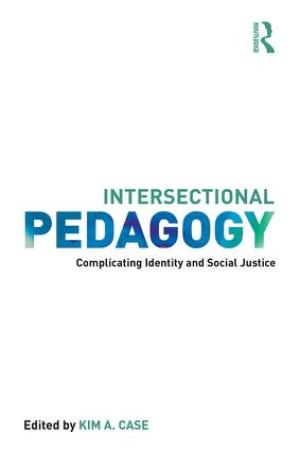
Intersectional Pedagogy explores best practices for effective teaching and learning about intersections of identity as informed by intersectional theory. Formatted in three easy-to-follow sections, this collection explores the pedagogy of intersectionality to address lived experiences that result from privileged and oppressed identities. After an initial overview of intersectional foundations and theory, the collection offers classroom strategies and approaches for teaching and learning about intersectionality and social justice. With contributions from scholars in education, psychology, sociology and women’s studies, Intersectional Pedagogy include a range of disciplinary perspectives and evidence-based pedagogy. (From the Publisher)
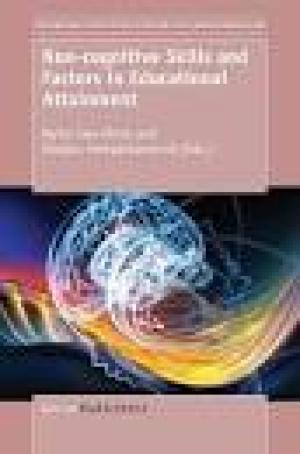
In the field of education, researchers firmly believe that non-cognitive skills and factors are equally or even more important than cognitive aspects in the educative process and for employment potentials. When identifying the personal qualities that are required to function well in the 21st century, the role of non-cognitive factors is often highlighted in the discourse. In recent years, increasing attempts have been made to investigate the role of non-cognitive factors in academic success. The notion of ‘non-cognitive’ has many phraseological collocations. Among frequently used collocations are constructs, traits, skills, abilities, variables, outcomes, attributes, and predictors. In addition, a myriad of other specific skills have been identified as non-cognitive. To name a few: grit, tenacity, curiosity, attitudes, self-concept, self-efficacy, anxiety, coping strategies, motivation, perseverance, confidence are among those frequently referred to in the literature. In some instances, non-cognitive factors are considered multifaceted. Some refer them to soft skills and personal characteristics that fall under the purview of affective domain. This book attempts to define non-cognitive traits, ways to measure them, impact of non-cognitive factors and how they can affect the positive outcomes in academic achievement, influence in employability, and success in social life. The information contained in this book provides knowledge growth and current thinking about non-cognitive factors and educational strategies that can be effectively used to nurture the well-being of individuals. (From the Publisher)
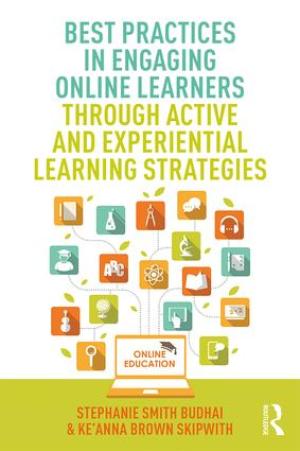
Click Here for Book Review Best Practices in Engaging Online Learners Through Active and Experiential Learning Strategies is a practical guide for all instructors and instructional designers working in online or blended learning environments who want to provide a supportive, engaging, and interactive learner experience. This book explores the integration of active and experiential learning approaches and activities including gamification, social media integration, and project- and scenario-based learning, as they relate to the development of authentic skill-building, communication, problem-solving, and critical-thinking skills in learners. Readers will find guidelines for the development of participatory peer-learning, cooperative education, and service learning opportunities in the online classroom. In addition, the authors provide effective learning strategies, resources, and tools that align learner engagement with course outcomes. (From the Publisher)
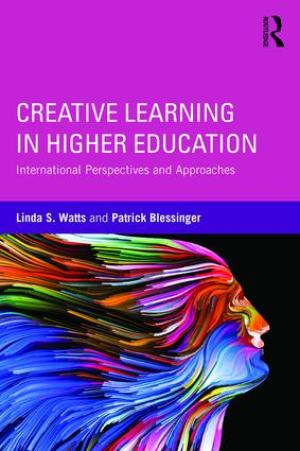
Click Here for Book Review This book provides higher education faculty and administrators a scholarly resource on the most salient aspects and emerging trends in creative learning in higher education today. International contributors explore ways to foster creativity in any student, regardless of academic discipline or demographic characteristics and demonstrate that creativity is a skill all students can and should learn. Chapters analyzes how different countries and cultures implement creative learning, exploring issues of instruction, assessment, and ultimately how these practices are transforming learning. This important book helps higher education professionals understand and cultivate creative learning across disciplines in any college and university setting. (From the Publisher)
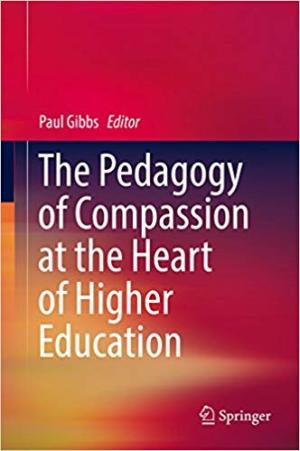
Click Here for Book Review This book offers a moral rather than instrumental notion of university education whilst locating the university within society. It reflects a balancing of the instrumentalization of higher education as a mode of employment training and enhances the notion of the students’ well-being being at the core of the university mission. Compassion is examined in this volume as a weaving of diverse cultures and beliefs into a way of recognizing that diversity through a common good offers a way of preparing students and staff for a complex and anxious world. This book provides theoretical and practical discussions of compassion in higher education, it draws contributors from around the world and offers illustrations of compassion in action through a number of international cases studies.